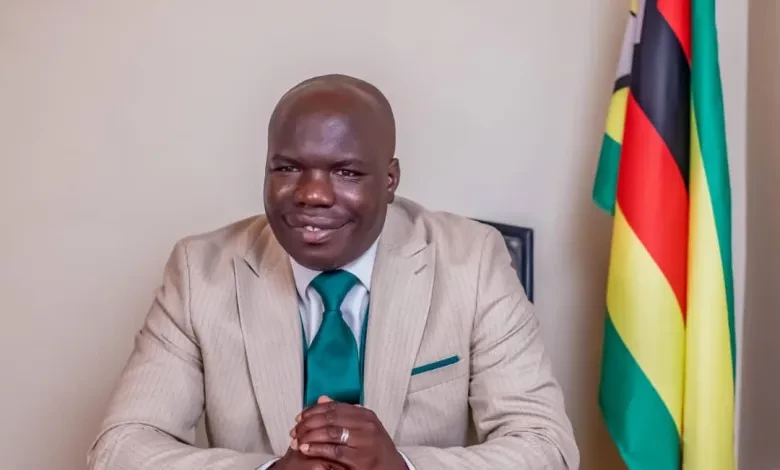
Contributors and their Story Titles
Compiled and edited by Ndaba Sibanda, the contributors to this rich and screamingly spellbinding text equally burst into their literary spaces and pages with dazzling, delightful, and different magic that keeps the reader banqueting, drooling, and awe-struck.
Sifanele Sibanda sets the tone high with her moving movie-like story titled The Deadly Big Bully. Then Khumbulani Malinga marks his royal and entrancing entrance with his Love Letter. Ntombizenhla Nxumalo poses the critical question Is This the Way It Should Be? On the other hand, Pentecost Mate’s proficient brush intensely paints The Rural Bathtub. Robert Mugore smartly discusses and dissects The Devil I Know. Banqobile Virginia Dakamela rightly reads Money Changer-in Law the riot act. Norah Sibotshwa has no kind words for Betrayal, and Ndaba Sibanda is transfixed and staggered after spotting The Immigrant with A Difference.
Introduction
This is an anthology of eight hypnotising short stories whose language, themes, styles, depth, diversity, and handling all make it extraordinarily fresh, imperative, and haunting. The collection The Smell of Betrayal: You Sting My Heart presents a profound exploration into the pervasive and malignant nature of betrayal, portraying it as a malicious force that infiltrates and corrodes interpersonal relationships, societal structures, and individual psyches. The evocative language underscores the chaotic and negative impact of betrayal, depicting it as a metaphorical carcinoma that demands vigilant resistance and collective condemnation. Through vivid imagery and poignant observations, the compilation elucidates how betrayal manifests as a catalyst for upheaval and emotional turmoil, leaving a trail of devastation and despair.
Characters and Their Arcs
Khumbu
Khethani-Youngest daughter to Khumbu
- Sibanda’s poetry awakens conscience to Africa’s climate woes
- Book Review: Trouble for Sale is intriguing, apt
- The Smell of Betrayal: You Sting My Heart Part Four: The Devil I Know a short story
Keep Reading
Kelvin-A friend to Khumbu’s family
Ronald-Friend to Khumbu’s husband
Susan-An old lover to Khumbu’s husband
Sukoluhle-Daughter to Susan and Kelvin
As the nursery rhyme goes, “Humpty Dumpty sat on a wall; Humpty Dumpty had a great fall. All the king’s horses and all the king’s men couldn’t put Humpty together again.” Much like Humpty Dumpty, Khumbu and her husband found their lives precariously balanced until an unforeseen accident brought them crashing down.
The narrative chronicles a harrowing vehicular disaster involving Khumbu, her spouse, and a truck driver. They were returning home from a funeral in Harare when they encountered a large cargo truck on their route to Gweru, having already passed Kwekwe. Despite surviving the accident, both Khumbu and her husband sustained significant disabilities. The husband experienced severe impairments, losing both legs and one arm, which confined him to a wheelchair for twelve months and affected his sense of masculinity. Meanwhile, Khumbu lost an eye and four fingers on her left hand and developed a permanent limp, necessitating a three-month hospitalization.
Khethani’s Christening and Comeback
In a bid to mark the baptism of their youngest and final daughter, Kethani, the couple orchestrated a noteworthy celebration that brought together a range of attendees, including esteemed colleagues from Saltan Engineering Company and Largesse Departmental Store. This event was not merely a social gathering but a significant milestone for the couple, symbolizing their resilience and return to normalcy following their harrowing accident. After their recuperation, Khumbu was reinstated in her professional role and was offered a new managerial position, reflecting both her recovery and her continued value within the workforce.
The act of hosting this celebration served as more than a ceremonial function; it provided the couple with a renewed sense of purpose and accomplishment. The grandeur of the event and the presence of supportive friends facilitated a temporary respite from their feelings of inferiority stemming from their disabilities. By successfully executing this social occasion, they were able to reaffirm their social identity and professional relevance, thus mitigating the psychological impacts of their physical impairments. The celebration ultimately played a pivotal role in reestablishing their sense of belonging within their community and professional networks, fostering a greater sense of integration and emotional well-being.
Emotional Distress and Social Strife
However, the situation soon took a different turn. Khumbu began to exhibit signs of self-pity, although she endeavored to mask her true feelings. Her emotions became evident through her facial expressions, including her eyes, lips, and cheeks. When visitors came to bid farewell, she displayed behaviors akin to those of a young girl infatuated with the male adults present. This conduct persisted for an extended period, significantly impacting her husband's mental well-being. He considered the possibility of ending their relationship but ultimately refrained from doing so.
Meanwhile, Kevin—a charismatic and womanizing individual who had previously usurped Susan, Khumbu’s husband’s intended spouse—reappeared in their lives. Kevin had impregnated Susan but had refused to marry her, taking their daughter, Sukoluhle, as his own. He had subsequently joined the army and purchased a residence in the affluent suburbs of Hillock, where he resided with his two daughters. Despite his past actions, Kevin continued to visit Khumbu’s family, which exacerbated her husband’s sense of emasculation. When Kevin affectionately kissed Khumbu upon departing, her husband responded by sending him an email threatening legal action, a measure that effectively curbed Kevin’s indiscreet behavior. The resurgence of past grievances profoundly disturbed her husband, causing considerable distress.
The Ethical and Emotional Complexities of Khumbu’s Husband
“A burden shared is a burden halved.” In this context, Khumbu’s husband came to understand that he could not impede his wife’s natural inclinations and desires. Recognising the necessity of addressing her emotional and relational needs, he encouraged Ronald—his childhood acquaintance, who remained unmarried and harbored affection for Khumbu—to engage with her in a manner that would fulfill her marital needs. The husband rationalised that it was preferable to involve someone familiar and trusted in this sensitive situation. Observing the positive transformation in his wife’s emotional state and overall vitality following Ronald’s involvement brought him profound satisfaction. Ultimately, the well-being and happiness of his family were paramount to him, overshadowing any personal reservations he might have had.
Stylistic devices
Stylistic devices are deliberate techniques employed in writing to enhance the impact and effectiveness of the text. They involve the strategic use of language to engage readers more deeply and convey ideas with greater precision and creativity.
Vivid Description
Vivid description involves the use of detailed, sensory-rich language to create a vivid and engaging portrayal of characters, settings, and events. This technique aims to paint a clear picture in the reader’s mind, thereby bringing the narrative to life. In the provided text, the detailed depiction of Kevin serves to highlight his captivating allure, which significantly impacts those around him:
“He was handsome even now in his mid-forties. He had an athletic frame, a long straight nose, and smallish sparkling eyes that could bore through any lady and leave them swooning with desire.”
Similes
Similes are figures of speech that draw comparisons between two different things using “like” or “as” to create more evocative and relatable imagery. They are employed to enhance the reader's understanding by drawing vivid parallels. In the narrative, similes are used to convey emotions and situations more effectively:
- “It blossomed like a flower ready for something, like pollen, a bee or a butterfly to sit on it and remind it that it was sweet, attractive, alive and admirable.”
- “She would sit like a small girl showing first signs of infatuation at the nearest male adult.”
- “No, she wasn’t just any other person or creature, like a dove, which would be just like all others out there in the bush! After all, how could I just let her out into the wild jungle without protection? I wouldn’t dare do that.”
Saying/Adage
Sayings or adages are traditional phrases or proverbs that express common wisdom or truths. They are often used to underscore key themes or offer moral insights. The proverb “Better the Devil I know” is utilized in the text to illustrate the concept of preferring familiarity over uncertainty. It conveys the prudence of maintaining established relationships or circumstances, even with their imperfections, rather than risking the unknown:
The proverb “Better the Devil I know” is employed to convey wisdom and prudence in prioritizing familiarity when faced with choices. It suggests that it is preferable to handle a situation or engage with individuals whom one is already acquainted with, despite their faults, rather than venturing into unfamiliar territories, relationships, or endeavors. In the context of the narrative, Khumbu’s husband, feeling emasculated, chooses to support Ronald as he believes Ronald will bring happiness and improved circumstances to his wife.
THEMES
Themes are central ideas or messages explored throughout a literary work. They reflect universal human experiences and are integral to understanding the deeper meaning of the text.
Suffering
The theme of suffering is intricately depicted through the physical and emotional trials endured by the couple following a tragic accident. Their disabilities and resultant struggles illustrate the profound impact of their ordeal. The husband’s severe impairments, including the loss of both legs and one arm, contrast with Khumbu’s injuries, which include the loss of an eye and four fingers, as well as a permanent limp:
“The accident left us crippled. I was more crippled as compared to my wife. I lost both my legs and one arm and I was hospitalized for twelve long months. Ever since then, I have been wheelchair-bound. My wife, on the other hand, lost an eye and four fingers on the left hand and was left with a permanent slight limp. She was hospitalized for three months. After our hospitalization, we settled permanently into our lives of disablement and took to comforting one another to the extent of making our lives somewhat enjoyable. We accepted disability positively and most of our friends made that remark to us. Needless to say that I was completely emasculated although Khumbu retained the loss of her eye. Most of our friends visited us as before. From my insurance payouts and my pension, we lived quite reasonably and respectably to be able to entertain those of our old friends who cared to continue to visit us as in the past.”
The narrative also explores the theme of resilience and adaptation as the couple navigates their new reality. Their journey towards acceptance and the ability to find joy despite their circumstances highlights the human capacity to endure and adapt.
Betrayal
The theme of betrayal is illustrated through Kevin’s actions and their consequences on personal relationships. Kevin's betrayal is multifaceted, encompassing both romantic and social dimensions:
“I had never really gotten close to Kelvin; I had never learned to like him over one particular incident in our boyhood, which of course I had never related to my wife. He had snatched Susan from me with his charming looks. I had intended to marry Susan but that had been before I met Khumbulani. Kelvin had impregnated Susan, refused to marry her, and taken the resultant daughter, Sukoluhle, his eldest.”
Kevin’s actions not only cause emotional pain and a sense of loss but also disrupt familial and social bonds. His subsequent visits and involvement with Khumbu further exacerbate the sense of betrayal experienced by her husband.
Conclusion
Robert Mugore’s “The Devil I Know” provides a compelling examination of personal adversity and ethical complexity. The narrative explores the profound impacts of physical and emotional trauma on Khumbu and her husband, using vivid descriptions to convey their suffering and resilience. The story highlights the ethical dilemma faced by Khumbu’s husband as he navigates the complexities of familial happiness and personal sacrifice, illustrated through the proverb “Better the Devil I Know.” Mugore’s work underscores the interplay between personal struggles and the pursuit of emotional well-being, offering a poignant reflection on trust, adaptation, and the human capacity for resilience.
About author
Robert Mugore is an experienced and inspired writer who is also a specialist in the theories and methods of education. He works at the Ministry of Education.
About reviewer
Maina Wahome, a polymath from Kenya, distinguishes himself as a linguist, educator, author, playwright, and poet. Having obtained a Bachelor of Education (B.Ed. Arts) with a specialization in English and Literature from Laikipia University in Kenya, he is currently immersed in the pursuit of a Master's degree in Applied Linguistics at Universitas Diponegoro in Indonesia. Wahome's academic pursuits in linguistics are wide-ranging, spanning Phonology, Morpho-Syntax, Cognitive Linguistics, and the intricate realms of Natural Semantic Metalanguage. His scholarly contributions extend beyond research articles, encompassing literary creations that transcend traditional academic boundaries. In addition to his linguistic endeavors, Wahome showcases his creative prowess through a diverse collection of literature, including novels, plays, and anthologies of poems. This multifaceted academic journey reflects a commitment to both the analytical depth inherent in linguistic exploration and the boundless creativity flourishing within the realm of literature.










